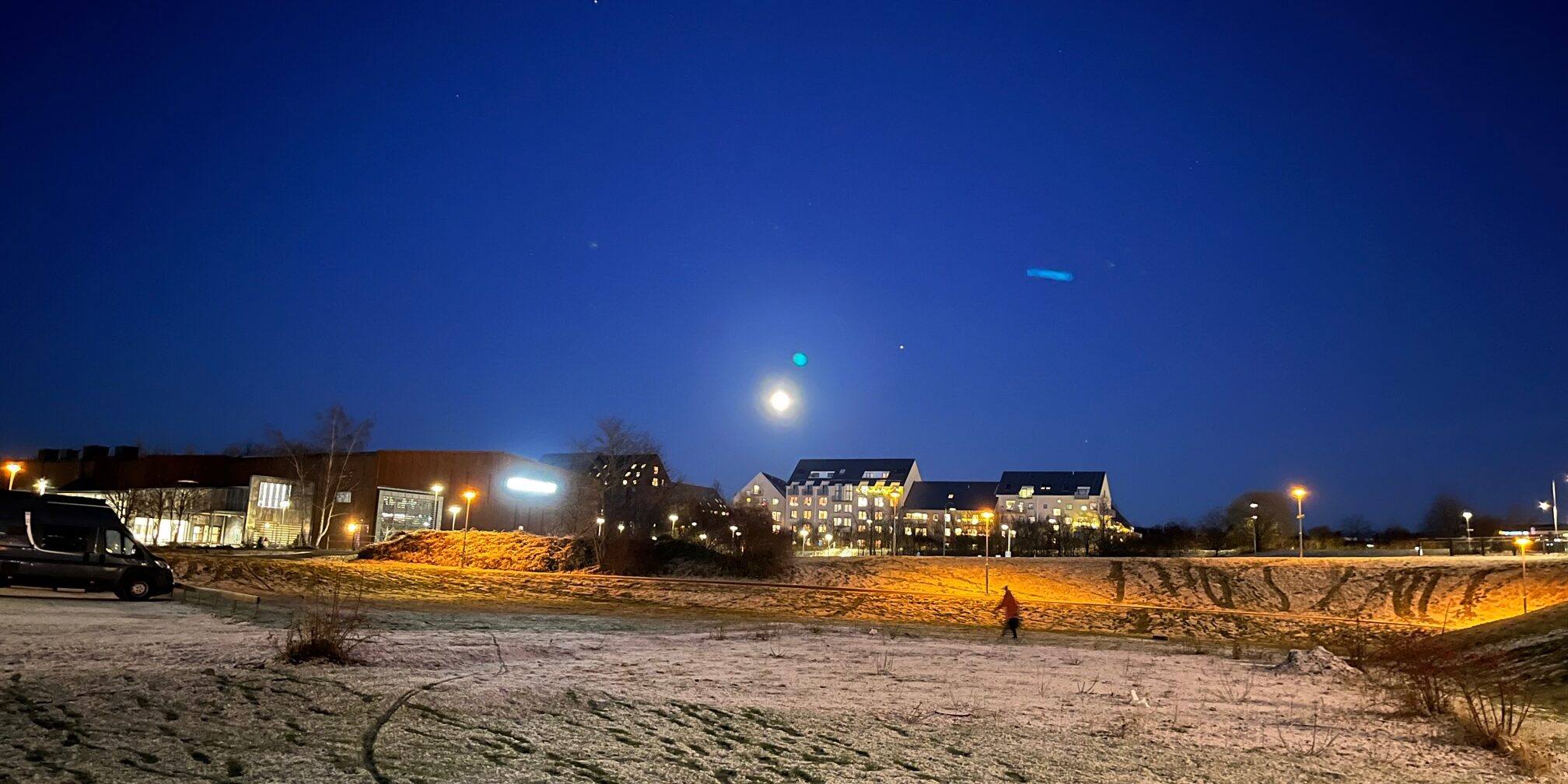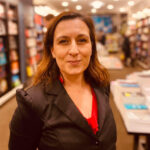In the latest in her series about relocating to Sweden, Duška Radosavljević Krojer experiences her first Swedish winter and considers the things you leave behind you as you travel through life.
When I wake up, I realise I have dreamt of everything. Everyone I have ever known as well as everyone I have met recently. It’s like my life has been flashing before my eyes in the dark of the night.
The other day in my Swedish class I was paired up with D. to plan an imaginary trip to a place in our new homeland that we haven’t visited yet. We picked Dalarna from the list of possibilities – “the place which”, our teacher Marika enthusiastically informed us, “is as if someone put Sweden into a pot and reduced it to a thick sauce”.
But Sweden in winter is a dark place; it’s hard to see ahead. D. and I soon drown our travel plans into a conspiratorial whisper about the winter blues. D. is a medical doctor from Uzbekistan currently out of work and married to a migration scholar. They have already moved with their family multiple times around the world, and D. is now learning Swedish after already having learnt Finnish and Japanese on her travels. I ask her how she copes, and she gives me her list of supplements, and then confesses her biggest problem is homesickness, something constantly pulling her back home. I relate to that, only homesickness is a distant memory for me. I have lived outside of my birth country for so long that there is hardly any pull there which I could not alleviate by eating ajvar, reading books or using Viber.
My second homeland Britain in which I’ve lived all of my adult life is a sort of itinerary rather than a fixed source of yearning. When it comes to actual places I miss, Edinburgh is most definitely it in the month of August, then some strange other details, like particular railway stations, memories of shops and cafes, tastes and smells, and theatres – definitely theatres and the people I might expect to meet in their foyers.
Isn’t it interesting how theatres too are dark places but their darkness is predominantly a source of comfort and healing and hopefully insight rather than bleakness or fear? This makes me think of a documentary about Robert Lepage I saw many years ago, when I was a student, in which his sister talked about how as a child Robert had been afraid of darkness and yet. as an adult, he ended up working in dark places all the time. It boils down to content, I think. If you can fill your dark place with content that gives you pleasure and a sense of purpose, there is no space in it for fear.
The thought of my student days prompts me to write to my university tutor who is now retired and who I have not seen for years. I tell him: ‘I’m writing to you because you are one of the people in my address book who has known me longest, and from that perspective everything seems so clear, and from this perspective I have lost my way’. He comforts me that theatre academia is no longer what it used to be and that he is grateful to just be able to play the piano instead. He writes to me about a fierce theatre person we had both known and admired, who – perhaps crushingly for those of us trying to hold on to our dreams about serving the art of theatre – packed it all in and re-found her sense of purpose in doing PR for plumbers.
Unlike my new friend D., I have almost nothing pulling me back, and in terms of my own inner yearning I realise I have nothing pulling me forward, either. I can only see empty darkness, surrounded by closed doors at the moment, cushioned only perhaps by a sense of presence of the people I love in my life.
This is where the jamming session that started in part one of this series comes to a crashing standstill. This is where all the other themes fall away and maybe only one sad solo remains to mourn my various losses, the deep grief that goes with saying goodbye to the hard-earned riches forcibly left behind, that were never perhaps fully mine either. I don’t know, it is hard to say when you are a person on the move what you actually own and what you only temporarily hold in your custody. You build connections, hopefully, rather than material acquisitions, legacies rather than edifices, and all you can do is hope for the best that *this* will matter to somebody other than you.
I have been touched by exchanges with specific individuals who I have left behind, ways in which I have been unexpectedly and deeply reassured of their honest devotion, but then my departure has also shown me with clarity to whom I mattered only to the extent to which I could be useful. This is the closest to dying and seeing who turns up at your funeral. (When this particular penny drops, I think maybe now is not the right moment after all to spruce up my LinkedIn profile by soliciting endorsements!)
That said, having poured my heart and soul into my work for nearly 25 years, the grief is real, and maybe it does require a ritual of sorts too. Or at least a break, a rest, a pause in which I sit in silence for a bit and watch the festive lights in deep Swedish winter. The 25 years of ups and downs has also taught me that the light does come in the end.
It is good timing then that this week in Sweden we celebrate St Lucia, a pagan holiday originally linked to the winter solstice in the Julian calendar which has survived to the present day. Though associated with white attires and lit candles now, Lucia (like her male companions lussiferda/ Lucifer) is a being that dialectically integrates light and darkness, good and evil, song and spectacle, celebration and fear. Throughout history her manifestations have been witchlike and angelic, pagan and Christian, male and female. With that in mind, I have no choice but to surrender to her all-encompassing mystery for the time being, and to wish you all, my fellow travellers, happy holidays of all kinds!
See you on the other side.
Read the first part of Duška Radosavljević Krojer’s Migration Diary: An Improvised Life, and the most recent instalment about Oliver Frljić’s Crime and Punishment in Stockholm
Duška Radosavljević Krojer is a writer, dramaturg and academic. She is the author of award-winning academic monograph Theatre-Making: Interplay Between Text and Performance in the 21st Century (2013) and editor of Theatre Criticism: Changing Landscapes (2016) and the Contemporary Ensemble: Interviews with Theatre-Makers (2013). Her work has been funded by the Arts and Humanities Research Council in the UK multiple times including for www.auralia.space (2020-21) and The Mums and Babies Ensemble (2015). She is a regular contributor to The Stage, Exeunt and The Theatre Times.








